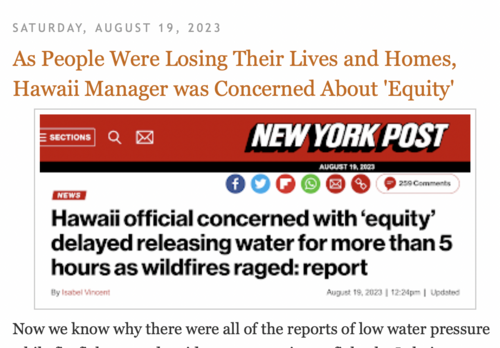Philosophical thought Only - Having some background in disaster planning, I can say with relative certainty, there were probably numerous failures or breaking points at multiple levels that will hopefully be analyzed by independent parties not subject to covering up any information for fear of reprisal or job protectionism, as this situation can present itself in any part of the world under the right conditions.
I will say, as there are many who tend to not consider earlier the effects of what's in my best interest a.k.a., personal responsibility. There are so many things happening in such a short period of time in this type of situation, that it turns into a "fog of War" scenario. Not unlike How waiting for a Tsunami or Earthquake effects above certain levels freeze people's ability to process the "what-to-do's", even though they are staring at the obvious risk in the face.
if a fire is moving at 60mph and the smoke trail is facing you, at what point do people decide to take action, or wait for a radio/tv/siren? and where to go, which roads to take? is there only 1? is there a road? does everyone have a car?, is there time for agencies to send transportation? what is the distance they have to travel to get to you? and at what point BEFORE a developing situation actually shows up on the TV/NEWS/RADIO analysis to saying, we may need and should decide to take action ourselves. (what we do know is that at some point, people did finally do that when they pushed themselves into the water, was it soon enough? was the fire just too fast to really give anyone a chance?
There is a time phased analysis that I think still needs to be clearer about how much time communities had to survive or die once the fire situation became clear. and what roll did the either an EOC , state and local officials play in observing, deciding and acting upon a rapidly developing situation. Once a well-defined timeline of events becomes clear, those answers and Gaps in effectiveness will become Highly evident. (keep in mind, under certain situations where things like "this never happened before, become the bedrock of disaster if you haven't planned for it in advance.)
The speed of the wind driven fire probably lessened time to observe and act (no one's fault -- just nature doing nature things). Real time analysis of a developing situation to actionable button pressing. The delay in time of those intrinsic notional issues creep into a person/community "what should we do" OODA loop. Knowing one's surroundings, planning for quick decisive choices can save lives. I am not faulting anyone in this statement, (those will come out in a post analysis) but what I am saying is, for the future, this is a lesson , and a hard one for anyone.
If a person or a community waits to be told what to do, it can have disastrous outcomes. There is a great video of a man from Japan who was interviewed post the Great East Japan Earthquake/Tsunami, 2011, who noted that people stood around could have lived if they just left after the quake, some people came back to the scene to grab valuables and died because of it. The thing was, they actually had more time to make choices , in a fire situation where things are moving 60mph or more.. it outpaces pretty much anyone's, including the professional's ability to conjure up action plans, when to get out warnings, get the response of the people, make sure the people actually believe it, and then hopefully get out in time.


